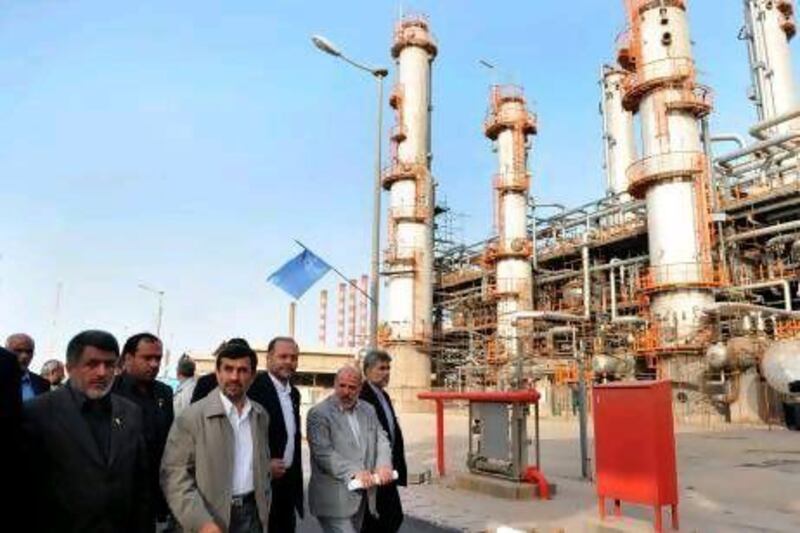Economic sanctions against Iran are being tightened today as the United States and the European Union aim to force the country to rethink its nuclear ambitions.
The price of oil spiked dramatically on Friday following positive developments in Europe where a deal was struck to help Spanish banks and steps to greater fiscal and banking union were made. The oil price increased the most in about three years, with ICE August Brent crude up 7 per cent, to US$97.80 a barrel and Nymex August West Texas Intermediate up 9.4 per cent to $84.96.
Analysts said the increased sanctions being imposed today against Iran, which is the second-biggest oil exporter among the Opec states, would not affect the price of oil because the moves had already been priced in by traders and output was at levels meeting global demand.
"Our average price for the year is about $95," said Farouk Miah, an analyst at NCB Capital in Saudi Arabia. "The current levels are relatively fair," he added.
"The news from Europe on Friday was positive but it's not the end of it. China and India are slowing, Europe is stagnant … many demand indicators are not great."
From today, the EU will stop importing Iranian oil and ban the insurance of vessels carrying Iranian crude.
As most of the insurance for maritime activities is traded in London, the tightened sanctions will make it more difficult for Iranian ships to transport oil around the world.
Iranian output dropped to a 20-year low last month as sanctions that have been in place for months took their toll.
Global production of crude oil decreased by 62,000 barrels, or 0.2 per cent, to an average 31.558 million barrels a day last month from a revised 31.62 million in May, according to a Bloomberg survey of oil companies, producers and analysts.
Output in Iran declined 65,000 barrels to 3.16 million barrels a day, the lowest level since June 1992. Opec kept its output limit at 30 million barrels a day at a meeting June 14 in Vienna.
Mr Miah said the unusual jump in oil prices on Friday was due to both the good news from Europe and a correction in the price, which had fallen about 20 per cent in the last quarter.
"Does the Europe news justify that 9 per cent increase in the oil price? This quarter fall is probably over the top," he said. "Iran is priced in."
European leaders agreed on Friday that the euro zone's rescue funds would be used to recapitalise struggling Spanish banks directly and to buy Italian sovereign bonds.
As a result, shares in Saudi Arabia increased the most in 10 weeks in early trading yesterday after global equities also rallied on Friday. The Tadawul All-Share Index rose 2 per cent to 6,715.70 in early trading, and closed at 6,709.91.
Saudi Basic Industries, the world's largest petrochemicals maker, and Al Rajhi Bank, the kingdom's biggest bank by market value, were up the most since April 17.
In the US, the S&P 500 increased 2.5 per cent, the highest increase in one day in the year so far.
twitter: Follow and share our breaking business news. Follow us
iPad users can follow our twitterfeed via Flipboard - just search for Ind_Insights on the app.





